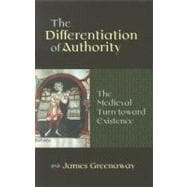
| Acknowledgments | p. vii |
| Introduction | p. 1 |
| The Medieval Political Order to 1150 | p. 19 |
| The Emergence of the Individual | p. 51 |
| Constitutionality and Existence in Medieval England | p. 83 |
| Crisis and Closure 1: The Isolation of the Sovereign Individual | p. 117 |
| Crisis and Closure 2: The Submergence of Existence | p. 146 |
| Continental Problems in Political Order | p. 179 |
| The Medieval Papacy and the Overreach of Authority | p. 204 |
| Toward the Future | p. 235 |
| Concluding Remarks: The Contemporary West and Islam | p. 269 |
| Bibliography | p. 295 |
| Index | p. 303 |
| Table of Contents provided by Ingram. All Rights Reserved. |
The New copy of this book will include any supplemental materials advertised. Please check the title of the book to determine if it should include any access cards, study guides, lab manuals, CDs, etc.
The Used, Rental and eBook copies of this book are not guaranteed to include any supplemental materials. Typically, only the book itself is included. This is true even if the title states it includes any access cards, study guides, lab manuals, CDs, etc.